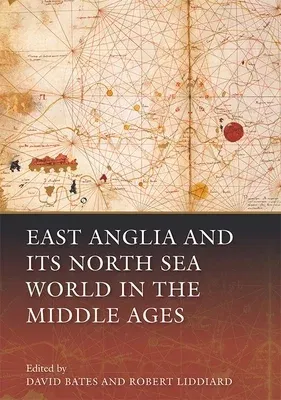The relations between medieval East Anglia and countries across the
North Sea examined from a variety of perspectives.
East Anglia was a distinctive English region during the Middle Ages, but
it was one that owed much of its character and identity to its place in
a much wider "North Sea World" that stretched from the English Channel
to Iceland, the Baltic and beyond. Relations between East Anglia and its
maritime neighbours have for the most part been peaceful, involving
migration and commercial, artistic, architectural and religious
exchanges, but have also at times beencharacterised by violence and
contestation. All these elements have played a significant role in
processes of historical change that have shaped the history both of East
Anglia and its North Sea world.
This collection of essays discusses East Anglia in the context of this
maritime framework and explores the extent to which there was a
distinctive community bound together by the shared frontier of the North
Sea during the Middle Ages. It brings together the work of a range of
international scholars and includes contributions from the disciplines
of history, archaeology, art history and literary studies.
David Bates is Professorial Fellow in History at the Universityof East
Anglia, Robert Liddiard is Professor of History at the University of
East Anglia.
Contributors: Anna Agnarsdóttir, Brian Ayers, Wendy R. Childs, Lynda
Dennison, Stephen Heywood, Carole Hill, John Hines, David King, Robert
Liddiard, Rory Naismith, Eljas Oksanen, Richard Plant, Aleksander
Pluskowski, Christopher Scull, Tim Pestell, Charles West, Gareth
Williams, Tom Williamson.

